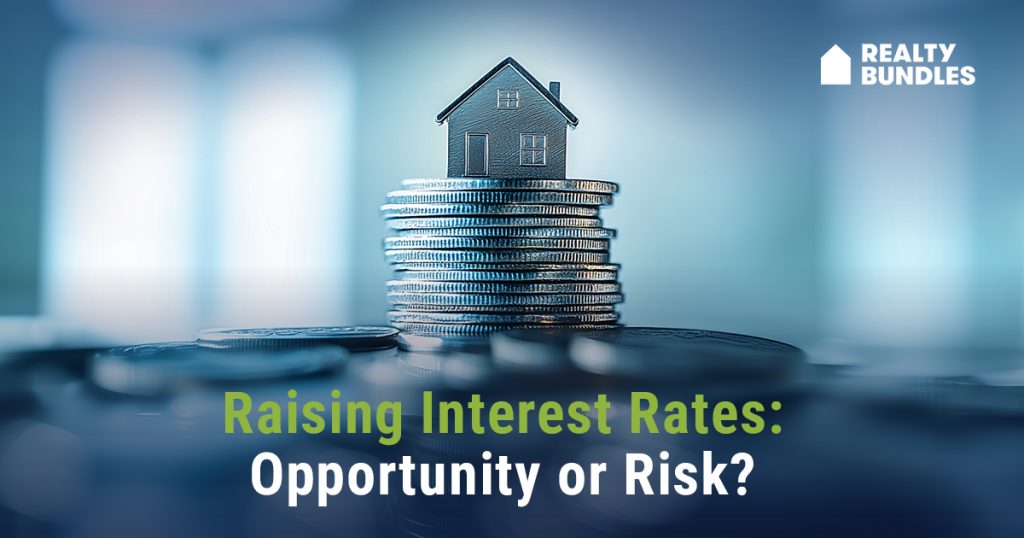The Impact of Interest Rate Hikes on the Real Estate Market in 2025: Opportunities and Risks for Investors

Rising interest rates are one of the most significant factors influencing the real estate market. Over the past few years, bank interest rates have increased considerably, directly affecting mortgage costs, property prices and the rental market. In 2025, the continued rise in interest rates is reshaping the landscape for homebuyers, investors and developers alike.
- The Impact of Interest Rate Hikes on Property Prices
- Effects on the Rental Market
- Investment Opportunities
- Risks to Consider
- Investment Strategies for 2025
- Conclusion
The Impact of Interest Rate Hikes on Property Prices
Higher interest rates directly affect the affordability of homes as they increase mortgage payments significantly. As a result, demand for residential properties may decline, particularly in premium real estate markets where mortgage financing plays a crucial role.
A drop in demand could lead to a slowdown in price growth or even price reductions in certain areas. In some regions, there has been a decrease in the rate of home sales and an increase in available properties. However, in areas with high demand and limited supply, such as major urban centres, property values may remain stable.
Effects on the Rental Market
Higher mortgage costs put pressure on potential homebuyers, pushing many towards the rental market instead. Increased demand for rental properties can drive up rental prices, especially in cities and areas with strong employment opportunities and good public transportation links.
For investors in rental properties, this trend can be beneficial. However, it is also essential to consider the additional costs of owning rental properties such as taxes and maintenance expenses.
Investment Opportunities
- Rental Market Investments: The growing demand for rental housing creates new opportunities to invest in income-generating properties, especially in areas with a high proportion of young professionals and families who prefer renting over buying.
- Purchasing Properties at Lower Prices: Higher interest rates may lead to situations where sellers under financial pressure must sell properties for below their market value. This scenario could allow investors to acquire assets at more attractive prices.
- Alternative Real Estate Investments: Projects such as student housing, small office spaces or assisted living facilities may present profitable alternatives for investors, particularly during periods of uncertainty in the traditional housing market.
Risks to Consider
- Higher Financing Costs: Investors must manage increased borrowing costs, which can make it more challenging to achieve substantial short-term profits.
- Potential Decline in Property Values: If demand drops significantly, investors may experience property devaluation in certain locations.
- Regulatory Changes: Governments may introduce new regulations aimed at stabilising the housing market, such as rent control measures or increased purchase taxes.
Investment Strategies for 2025
- Focusing on High-Demand Areas: Investing in cities or neighbourhoods with strong employment prospects, educational institutions and transport connectivity can remain profitable even in uncertain times.
- Prioritising Income-Generating Properties: Seeking properties with strong long-term rental potential can provide more stable returns.
- Exploring Creative Financing Solutions: Looking for flexible mortgage terms, business partnerships or private funding options can help investors navigate rising interest rates.
- Monitoring Regulatory Developments: Staying informed about policy changes and adjusting investment strategies accordingly can help investors mitigate risks.
Conclusion
The rise in interest rates in 2025 presents both challenges and opportunities for investors in the real estate market. Investors who adapt to changing conditions, carefully assess risks and opportunities and implement well-planned strategies may find profitable investment prospects during this period. For those involved in real estate investment, now may be an opportune time to reassess portfolios and, in some cases, take advantage of favourable market conditions for new acquisitions.
